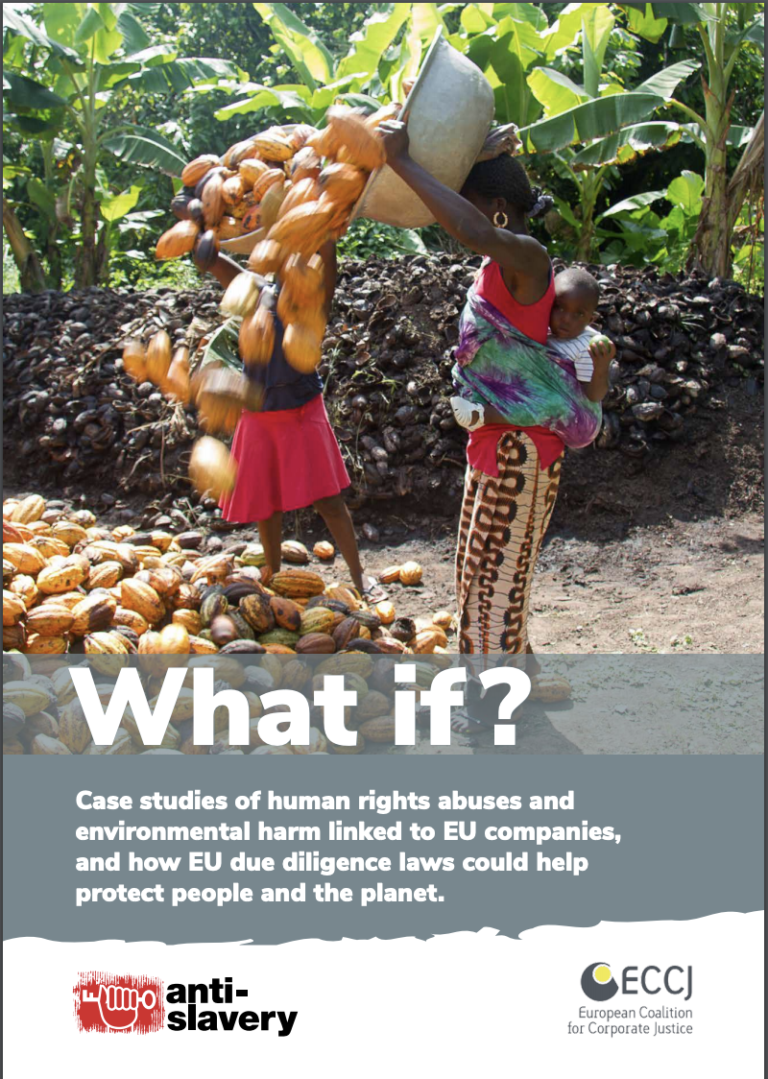Over the past few decades, some of the EU’s largest and most well-known companies have been involved in appalling human rights abuses and environmental harm in countries across the globe. The companies have failed to address abuses perpetuated by subsidiaries or business partners in their global value chains, over whom they often have considerable control or influence. In many cases, the costs in these global value chains are kept down as a result – directly or indirectly – of those same abuses
The case studies clearly demonstrate how EU-wide mandatory cross-sectoral human rights and environmental due diligence legislation, with a strong liability and enforcement regime and improved access to remedy rules, would make a difference in these cases. There is already strong recognition of the need for change. The European Commission published a report in February 2020 highlighting the urgent need for regulatory action at EU level. Many EU and non-EU countries are already adopting or considering their own due diligence legislation. In April 2020, the EU Commissioner for Justice committed to an EU-wide initiative on mandatory human rights and environmental due diligence legislation, to be presented in 2021.
A number of leading businesses and business associations have supported calls for the law, arguing for the need to level the playing field and drive a uniform standard. Businesses taking appropriate steps to respect human rights and the environment face considerable disadvantages if competitors profit from lower costs gained through exploitation and disregard for these issues. Only by introducing binding legislation can we truly protect people and planet, tackle human rights and environmental abuses linked to European operations, products and services, and finally hold EU-based companies to account.

